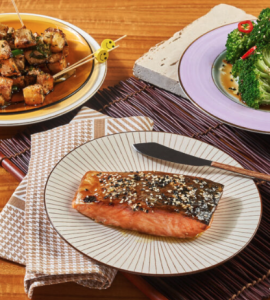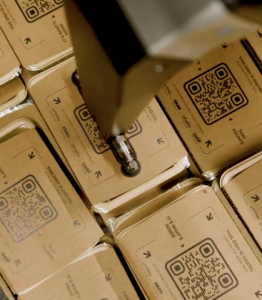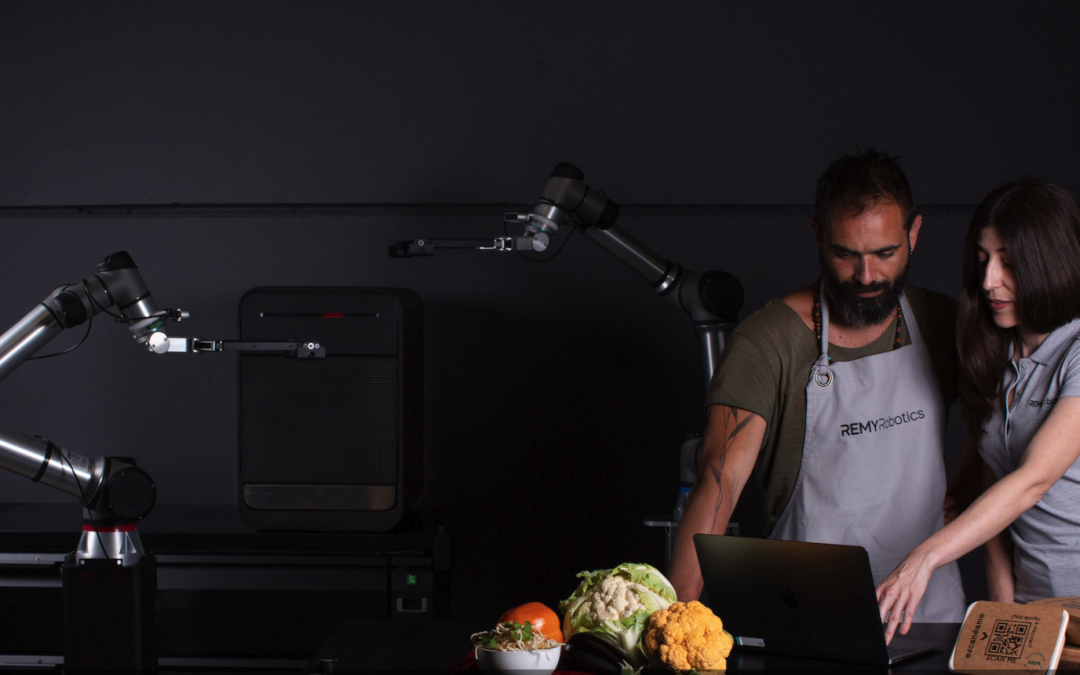A goal of making healthy food more accessible by harnessing the power of robotics is among the founding principles behind a new automated restaurant concept that recently debuted in New York City.
Dubbed ‘Better Days,’ the robotic-ran restaurant works like a virtual brand, officially launching inside a NYC CloudKitchen location earlier this month as a delivery- and takeout-only hub. Its menu features options such as tandoor chicken or teriyaki salmon (to name a few) paired with rice and a variety of vegetables, priced between $7 and $16.

‘Better Brands’ meals offer a range of health-conscious options.
Realizing his passion for the food industry, founder and CEO Yegór Traiman left his job as an electric-vehicle engineer five years ago to launch Remy Robotics, an AI foodservice company, that runs Better Days.
“Remy Robotics exists to do what was previously thought impossible, make high-quality delicious food consistently, accessibly and profitably at scale,” said Traiman.
The robotics company has already been “secretly” testing the brand under different names for the past two years, serving over 100,000 meals through commissary kitchens in NYC, Barcelona, Madrid and Paris—receiving positive reviews, according to the company.
In an interview with Food On Demand, Traiman relayed that his goal for Remy’s robotic kitchens is to sway from solely using commissary and ghost-kitchen concepts, eventually adding company-owned retail locations to its roster. Traiman says these locations will still be off-premises-focused yet also offer a form of limited, dine-in space.

Remy Robotics Founder, CEO Yegór Traiman
Human, robots collab
How it works: A team of chefs prepare the meals ahead of time in a Brooklyn commissary before placing them in special packaging equipped with a QR code indicating what’s inside. The meals are sent to the autonomous restaurant and placed in high-tech cold storage systems. From there, the robots finish the job.
“To really make it work you need to take the best from two systems, from the human system and the robot system…not to marry them but to find the right partnership,” said Traiman.
When Remy receives an order, a robotic arm selects the menu item from the cold storage bin and transfers it to an oven where the food is cooked to exact specifications using AI algorithms. Infrared sensors monitor the food’s internal temperature and a precision scale calculates moisture reduction.
The robots can autonomously decide how long to cook a dish, with the ability to take into account where the customer lives and how long it will take for delivery or pickup.

‘Better Brands’ meal packaging contains QR codes to inform robots what’s inside.
The company also states that its robotic kitchens can cook hundreds of dishes, while only requiring up to 200 square feet to operate.
The Better Days brand joins several other restaurants’ journey in utilizing robots to operate mundane back-of-house tasks. Chipotle has been experimenting with automated makelines and guacamole bots, and McDonald’s previously tested robotic fry cooks.
Yet, what sets Remy’s concept apart, according to Traiman, is the potential to one day serve low-density areas. Reiterating the goal to make wellness food as accessible as fast food, Traiman says he sees potential for Remy kitchens in places that underserve quick, healthy-options, such as on highways.
In addition, Traiman is also eyeing the possibility of what he calls “franchising 2.0” in which “you don’t need a traditional profile of a franchisee, who is ready to bear the operational hassle” but rather a “new generation of young professionals who will be much more focused on digital marketing customer acquisition.”
Better Days is available in NYC through its own app or any major third-party delivery provider.


